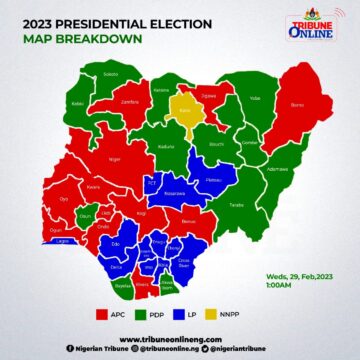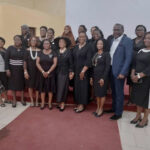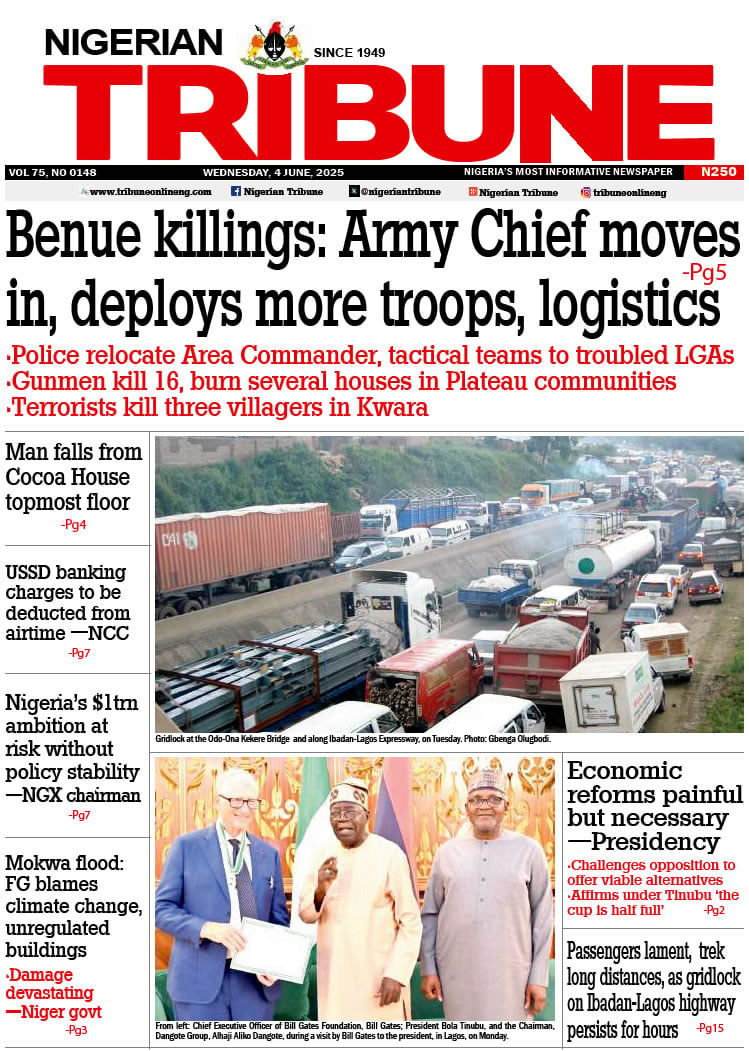Ifeoluwa Akinola
The former Lagos governor and national leader of the APC polled the majority votes with 8,805,428 votes, with Atiku and Obi trailing behind in the second and third positions with 6,984,290 votes and 6,093,962 votes, respectively.
The presidential candidate of the New Nigeria Peoples Party (NNPP), Rabiu Kwankwaso, scored 1,496,671 votes to come fourth.
According to the constitution, the winner needs to have the largest number of votes nationwide and at least 25% of the votes in two-thirds of the 36 states and Federal Capital Territory (Abuja)
From the results, Tinubu has 37% of the votes counted so far, former Vice President Abubakar has 2%, and Labour Party candidate Peter Obi has 24%.
Tinubu won the elections in Rivers, Borno, Jigawa, Zamfara, Benue, Kogi, Kwara, Niger, Osun, Ekiti, Ondo, Oyo, and Ogun states.
Atiku won in Katsina, Kebbi, Sokoto, Kaduna, Gombe, Yobe, Bauchi, Adamawa, and Taraba states. He also won in Osun, Akwa Ibom, and Bayelsa states.
Obi won in Edo, Cross River, Delta, Lagos, FCT, Plateau, Imo, Ebonyi, Nasarawa, Anambra, Abia, and Enugu states.
Meanwhile, both Atiku Abubakar and Peter Obi’s parties have asked for the election to be cancelled and collation re-done because they believe the process is rigged and not transparent enough since the electoral commission couldn’t put the results on its website as it had earlier promised.
The new electronic voting machine, which was supposed to speed up the process, caused problems for many voters when they tried to upload their votes.
Many polling places opened several hours late, and some were attacked by armed men. There were also a lot of delays. Voting was held overnight and on Sunday in some areas.







